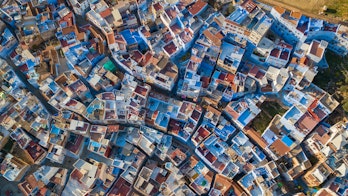
Morocco
Association country
Energy system of Morocco
The development of renewables is helping to improve energy security as well as deliver on Morocco’s clean energy and climate change commitments. Morocco is making strong progress towards affordable, reliable, sustainable and modern energy in line with the United Nations Sustainable Development Goals (SDG 7). The government has achieved almost full access to electricity for its rural population, and it is developing the country’s significant renewable energy resources. However, progress in reducing the energy intensity of Morocco’s economy is more difficult to achieve. While the share of renewables in electricity is progressing fast, its share in total final consumption (TFC) decreased considerably over the past decade, given the expanding energy demand. Morocco has only renewable energy targets for electricity. With a view to meet SDG 7, which seeks a substantial increase in the share of renewable energy in the global energy mix (measured in TFC) by 2030, the government is encouraged to set targets for the use of modern renewables in residential and transport. This will strongly promote the reduction of fossil fuel use across the economy. As Morocco continues to rely on coal, oil, and gas imports for most of its energy needs, opportunities abound to reduce imports by developing domestic energy resources to reduce oil and coal use.
Policies
Explore policy database by topic
Key recommendations
-
Drive the implementation of the country’s clean energy transition and increase private investment in clean energy by completing electricity and gas market reforms and by making operational the planned regulatory authority.
-
Make energy efficiency a priority by implementing existing legislation, adopting cost effective energy efficiency policies and standards, and moving quickly to agree and implement a national energy efficiency strategy for 2030. Ensure that financial necessary resources accompany the policy.
-
Revise policies for oil stockholding, take steps to secure future natural gas imports and to strengthen power system operation and energy system planning in a system with higher shares of variable renewables.
-
Accelerate the development of renewable technology beyond the power sector to drive sustainable cooling and heating, transport, and water management.
-
Focus on ensuring effective governance and inter-ministerial co-ordination, on prioritising the most important and urgent actions, and on ensuring that planned commitments are translated into delivery on the ground, underpinned by analysis to identify the most cost-effective solutions and data to measure progress.
